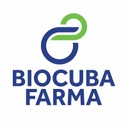Executive Secretary

Simposio Internacional de Ciencias Farmaceúticas
SICF
Abstract
Several organisms are used in ecotoxicological studies to measure the impact of possible polluting substances on the environment. Poecilia reticulata is a species recommended by the OECD as a representative test organism of freshwater ecosystems. At the UCLV's Center for Chemical Biaoctives (CBQ), a battery of tests that uses P. reticulata fish as a biological reagent was implemented. They were kept under controlled conditions of maintenance and accommodation, with an artificial light system (900-1000 lux and 12 x 12 h photoperiod). Healthy juvenile fish (1.5 months old) were randomly selected, keeping the weight of the oldest less than twice that of the youngest. The fish did not show any sign of disease, behavioral dysfunction or mortality during acclimatization. Ten individuals and three replicas were used for the evaluation of the maximum concentration (according to the criteria of discharge to the environment). In addition to the negative control group, another inactivated control was used for bioproducts. The duration of the trials was 96 h and 30 days, for chemical products and bioproducts, respectively. The results show 12 experiments used to prepare the control chart with copper sulfate as a reference compound, as well as the evaluations of four bioproducts (IHPLUS from Indio Hatuey, Matanzas; SevetriC from CENSA; Thurisave-13 and Thurisave-24 from LABIOFAM Business Group). P. reticulata proved to be useful for the ecotoxicological evaluation of different compounds under the conditions created in the CBQ.
Resumen
Diversos organismos son
utilizados en estudios ecotoxicológicos para medir el impacto de posibles sustancias
contaminantes sobre el medio ambiente. Poecilia
reticulata es una especie recomendada por la OECD, como organismo de prueba
representativo de ecosistemas de agua dulce. En el Centro de Biaoctivos
Químicos (CBQ) de la UCLV se implementó una batería de ensayos que utiliza al
pez P. reticulata como reactivo
biológico. Estos se mantuvieron en
condiciones controladas de mantenimiento y alojamiento, con sistema de luz
artificial (900-1000 lux y fotoperiodo 12 x 12 h). Peces juveniles (1,5 meses de edad) fueron seleccionados
aleatoriamente, con buen estado de salud y con la particularidad de que el peso
del mayor no puede duplicar al del menor. Los peces no presentaron mortalidad
durante la climatización, ni indicadores de enfermedad o disfunción conductual. Se utilizaron 10 individuos y
tres réplicas para la evaluación de la concentración máxima, (según criterio de
vertimiento al ambiente). Además del grupo
control negativo, se utilizó otro control inactivado para los bioproductos. La
duración de los ensayos fue de 96 h y 30 días, para productos químicos y
bioproductos, respectivamente. Los resultados muestran los 12 experimentos para
la confección de la carta de control, utilizando el sulfato de cobre como
compuesto de referencia, así como las evaluaciones de cuatro bioproductos
(IHPLUS de Indio Hatuey de Matanzas, SevetriC del CENSA, Thurisave-13 y Thurisave-24 del Grupo Empresarial LABIOFAM). P.
reticulata demostró ser útil para la evaluación ecotoxicológica de
diferentes compuestos bajo las condiciones creadas en el CBQ
About The Speaker

Dr. Alfredo Meneses Marcel

